Spearguns Nylon and dyneema lines
()Sort by
-
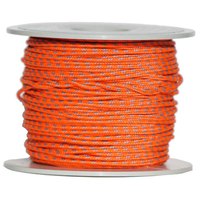
Sigalsub Dyneema External Cover 5 m
3.99 €
-
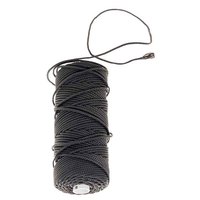
SEAC Speargun Line 100 m
111.49 €
-
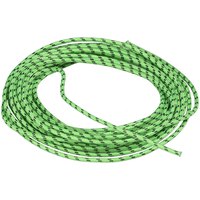
Salvimar Dyneema Line 5 m
5.99 €
-
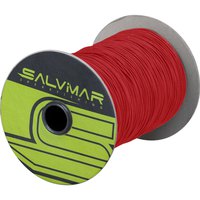
Salvimar Line Monored 50 m
29.99 €
-

Sigalsub Dyneema with External Cover 100 M
41.99 €
-
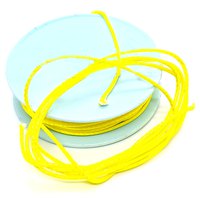
Denty Pure Dyneema Line 10 m
12.99 €
-
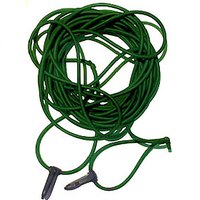
Denty Expandable Elastic Band 15 m
12.99 €
-
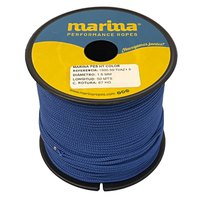
Marina Performance Ropes Marina Pes HT Color 50 m Double Braided Rope
6.99 €
-
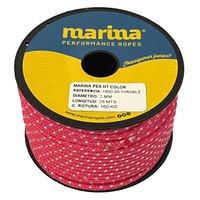
Marina Performance Ropes Marina Pes HT Color 25 m Double Braided Rope
5.99 €
-

Cressi Trevira 200 m Line
52.99 €
-
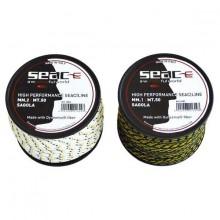
SEAC Dyneema 50 M Dyneema Rope
41.49 €
-
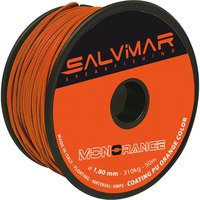
Salvimar Mono Line Cape 1.80 mm
59.49 €
-

Salvimar Mono Line Cape 1.20 mm
30 €
-
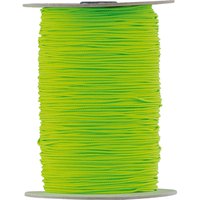
Salvimar Acidyne Dyneema 1.3 mm 400 m Dyneema Rope
289.99 €
-

Salvimar Dyneema 2 mm 400 m Dyneema Rope
312 €
-
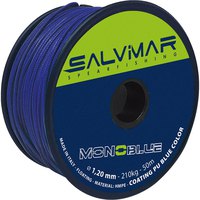
Salvimar Mono Line Cape 1.20 mm
30 €
-
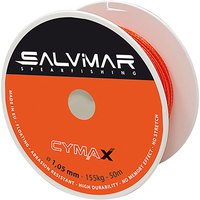
Salvimar Cymax 50 m Dyneema Rope
28.99 €
-

Salvimar Polyester 1.7 mm
9.99 €
-

Salvimar Acidyne 50 m Dyneema Rope
32.99 €
-

Salvimar Dyneema 1.5 mm 120kg Dyneema Rope
22.99 €
-
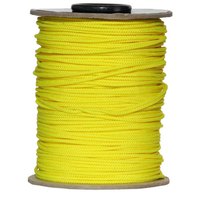
Sigalsub Polyester Covered Bobine 50 m
11.49 €
-
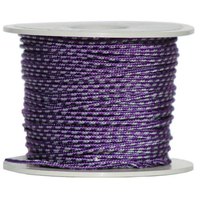
Sigalsub Dyneema External Cover 50 m
19.99 €
-
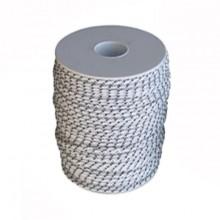
Sigalsub Dyneema with External Cover 5 M
3.99 €
-

Sigalsub Dyneema External Cover 5 m
5.99 €
-

Sigalsub Dyneema External Cover 5 m
3.99 €
-
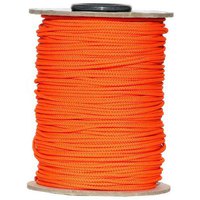
Sigalsub Polyester Covered Bobine 100 m
19.99 €
-

Sigalsub Dyneema with External Cover 50 m Line
22.99 €
-

Sigalsub Pure Dyneema Reel 100 m Line
44.99 €
-

Sigalsub Dyneema Length 5 M
3.99 €
-

Sigalsub Dyneema External Cover 50 m
30.49 €
-

Sigalsub Dyneema External Cover 100 m
36.99 €
-

Sigalsub Dyneema External Cover 5 m
3.99 €
-

Sigalsub Dyneema External Cover 50 m
19.99 €
-
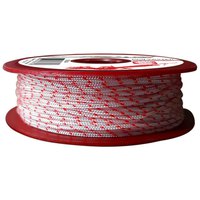
Epsealon Polyester 100K 50 m
9.99 €
-

Picasso Dyneema Wishbone Line 50 m
70.99 €
-
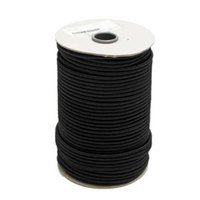
Picasso Elastic Cable 50 M
48.99 €
-

Picasso Elastic Cable 50 M
68.99 €
-

Imersion Nylon Line
14.49 €
-
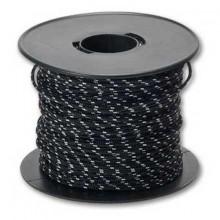
Imersion Aramidic Lining Line
25.99 €
-
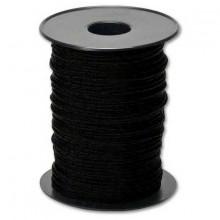
Imersion Nylon Line
13.99 €
-

Denty Dyneema Line 50 m
27.49 €
-

Denty Pure Dyneema Line 10 m
17.49 €
-
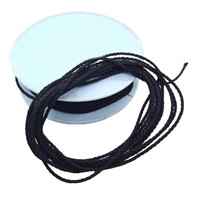
Denty Polyester 20 mm
10.99 €
-
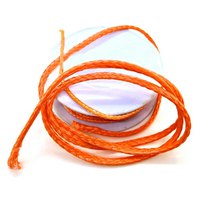
Denty Pure Dynema Line 1.5 mm 10 m
14.99 €
-
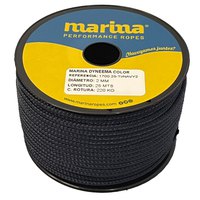
Marina Performance Ropes Marina Dyneema Color 25 m Rope
15.99 €
-
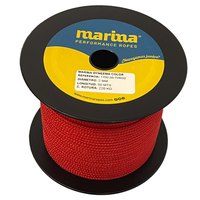
Marina Performance Ropes Marina Dyneema Color 5 m Rope
5.99 €
-

Marina Performance Ropes Marina Pes HT Color 50 m Double Braided Rope
6.99 €
-
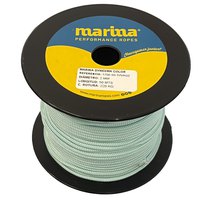
Marina Performance Ropes Marina Dyneema Color 50 m Rope
9.99 €
-

Marina Performance Ropes Marina Pes HT Color 25 m Double Braided Rope
7.49 €
-

Marina Performance Ropes Marina Pes HT Color 25 m Double Braided Rope
5.99 €
-

Marina Performance Ropes Marina Pes HT Color 25 m Double Braided Rope
5.99 €
-

Marina Performance Ropes Marina Pes HT Color 25 m Double Braided Rope
5.99 €
-

Marina Performance Ropes Technical Thread 50 m Braided Rope
4.99 €
-
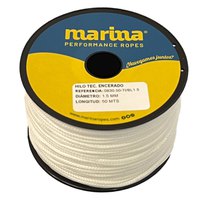
Marina Performance Ropes Waxed Technical Thread 50 m Braided Rope
5.99 €
-

Marina Performance Ropes Marina Pes HT Color 25 m Double Braided Rope
5.99 €
-

Marina Performance Ropes Marina Pes HT Color 50 m Double Braided Rope
6.99 €
-

Marina Performance Ropes Waxed Technical Thread 50 m Braided Rope
5.99 €
-

Marina Performance Ropes Multirope 25 m Double Braided Rope
12.99 €
-

Marina Performance Ropes Marina Pes HT Color 50 m Double Braided Rope
6.99 €
-

Marina Performance Ropes Dynamic 50 m Rope
30.99 €
-

Marina Performance Ropes Marina Dyneema Color 50 m Rope
9.99 €
-

Marina Performance Ropes Marina Pes HT Color 25 m Double Braided Rope
5.99 €
-

Marina Performance Ropes Marina Pes HT Color 50 m Double Braided Rope
9 €
-

Marina Performance Ropes Marina Pes HT Color 50 m Double Braided Rope
6.99 €
-
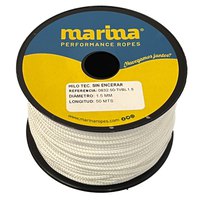
Marina Performance Ropes Technical Thread 50 m Braided Rope
4.99 €
-

Marina Performance Ropes Marina Dyneema Color 25 m Rope
9.99 €
-

Marina Performance Ropes Marina Pes HT Color 25 m Double Braided Rope
7.49 €
-

Marina Performance Ropes Elastic Line 25 m Rope
17.49 €
-

Marina Performance Ropes Marina Dyneema Color 25 m Rope
15.99 €
-

Marina Performance Ropes Marina Dyneema Color 5 m Rope
5.99 €
-

Marina Performance Ropes Marina Pes HT Color 25 m Double Braided Rope
5.99 €
-

Marina Performance Ropes Marina Pes HT Color 25 m Double Braided Rope
7.49 €
-

Marina Performance Ropes Marina Pes HT Color 50 m Double Braided Rope
9 €
-

Marina Performance Ropes Marina Pes HT Color 50 m Double Braided Rope
9 €
-

Marina Performance Ropes Waxed Technical Thread 50 m Braided Rope
5.99 €
-

Marina Performance Ropes Waxed Technical Thread 50 m Braided Rope
5.99 €
-

Marina Performance Ropes Waxed Technical Thread 50 m Braided Rope
5.99 €
-

Marina Performance Ropes Marina Pes HT Color 50 m Double Braided Rope
6.99 €
-

Marina Performance Ropes Technical Thread 50 m Braided Rope
4.99 €
-

Marina Performance Ropes Marina Dyneema Color 50 m Rope
9.99 €
-

Cressi Dyneema Line 10 M
11.99 €
-

Cressi Dyneema 50 m Line
49.99 €
-

Cressi Dyneema 50 M Dyneema Rope
77.99 €
-

SEAC Dyneema 50 m Dyneema Rope
72.49 €
-

Salvimar Line Monored 100 m
64.99 €
-

Salvimar Dyneema Line 1.5 mm 120kg
5.49 €
-

Salvimar Mono Line Cape 1.50 mm
46.99 €
-

Salvimar Circular Elastic Legato Hero 105-16 cm
25.99 €
-

Salvimar Mono Line Cape 1.20 mm
30 €
-

Salvimar Dyneema 1.5 mm 400 m Dyneema Rope
143.49 €
-

Salvimar Dyneema 1.5 mm 400 m Dyneema Rope
156.99 €
-
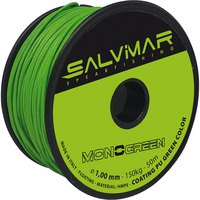
Salvimar Mono Line Cape 1 mm
32.99 €
-
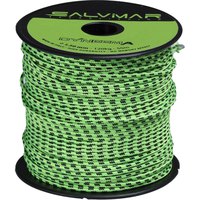
Salvimar Dyneema Line 50 m
22.99 €
-

Beuchat Dyneema Line
59.49 €
-

Mares Pure Passion Diamond 50 m Line
36.99 €
-
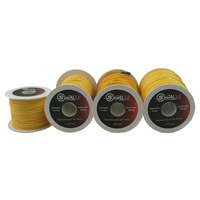
Sigalsub Dyneema Reel 50 M
24.99 €
How to choose nylon and dyneema lines?
Nylon and dyneema lines for spearguns are one of the best lines for spearguns. These lines are much more powerful than regular speargun lines, and now many fishers utilize them. The nylon and dyneema lines are for spearguns created with thin threads and they manage to have a layer to cover the flimsy fibers. The brands that offer these lines are Cressi, SEAC, Mares, Salvimar, and Beuchat.Choosing the nylon and dyneema lines for spearguns
When choosing between nylon and dyneema lines, there are several factors to consider based on your specific needs and the intended use of the line. Here are some key considerations:
Strength and Durability: Dyneema lines are known for their exceptional strength to weight ratio. They are significantly stronger than nylon lines of the same diameter. If you require a line with high tensile strength and minimal stretch, Dyneema is an excellent choice. Nylon lines, on the other hand, offer good strength but are generally not as strong as Dyneema. However, nylon lines tend to be more durable and resistant to abrasion, making them suitable for applications where wear and tear are common.
Stretch and Shock Absorption: Nylon lines have a higher degree of stretch compared to Dyneema. This stretch provides excellent shock absorption, making nylon lines a preferred choice for applications that require some give and forgiveness, such as docking lines or anchor lines. Dyneema lines have minimal stretch, which can be advantageous for applications that require maximum sensitivity and minimal elongation, like fishing or kite flying.
Water Resistance: Nylon lines tend to absorb water, which can affect their strength and performance. Wet nylon lines can become weaker and may require drying before storage. Dyneema lines, on the other hand, are highly resistant to water absorption. They maintain their strength and performance even when wet, making them suitable for water based applications like boating or marine sports.
UV Resistance: Both nylon and Dyneema lines can be treated or manufactured to have UV resistance. However, in general, Dyneema lines tend to have better inherent UV resistance and can withstand prolonged exposure to sunlight without significant degradation. If your line will be exposed to outdoor elements and sunlight, consider selecting a UV resistant variant for better longevity.
Diameter and Flexibility: Nylon lines typically have a larger diameter compared to Dyneema lines of the same strength. This can affect their flexibility and ease of handling. Dyneema lines are thinner and more flexible, allowing for better knot tying and easier handling in general. If you require a line that is easy to work with and has a smaller diameter, Dyneema may be a better choice.
It´s important to assess the requirements of your specific use case and consider the trade offs between strength, stretch, water resistance, UV resistance, and price.

























